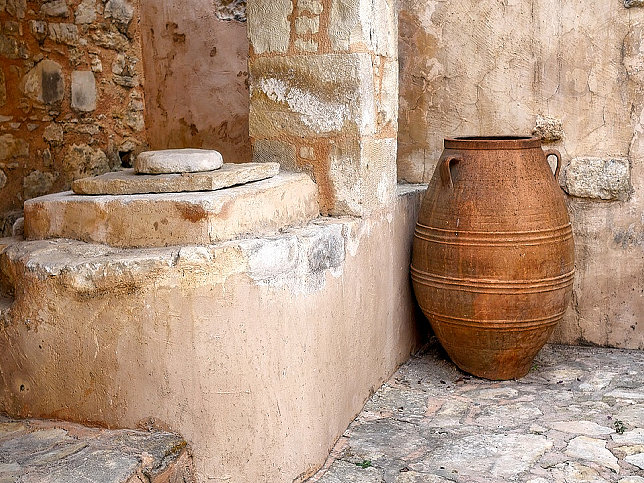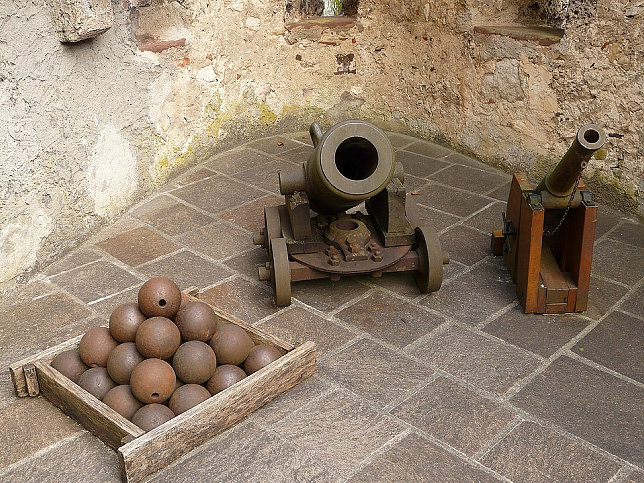Fairy tales and legends - The Turks in Güssing
During the siege of the Castle Güssing by the Turks there was a long fight. In vain the enemy had stormed the castle, which was situated on a steep rock. The bravery of the defenders thwarted every success. When the Turks finally realized that the castle could not be conquered by force of arms, they wanted to force the crew to surrender by starvation.The siege lasted for a long time, and despite all the restrictions, the food in the castle gradually ran out. It was clear to the brave defenders that they could not hold out much longer. So the lord of the castle wanted to try a ruse in the extreme distress to deceive the besiegers and make them leave.
He had the modest supply of flour that still existed brought in, but it was so small that it hardly filled a small basket. At night a large flour barrel was placed on the outer wall of the castle, so that the bottom of the barrel rose to the top. The small amount of flour was poured on top of it, so that it seemed as if the barrel was filled to the brim and there was still an abundance of flour in the castle. At daybreak the lord of the castle had the last ox, which was still alive in the fortress, roam behind the castle wall and beat it so violently with shaking that the painfully tormented cattle roared incessantly. The besiegers were to be made to believe that there was still a whole herd of slaughter cattle in the castle.
When the Turks heard the continuous roar of oxen and saw the overflowing flour barrel standing on the castle wall, they really believed that the besieged were still abundantly supplied with provisions and that it was therefore pointless to wait any longer for a famine in the castle. They lifted the siege and left Güssing on the same day half an hour before noon.
In remembrance of this rescue from the Turkish danger the bells in the old parish church of Güssing were rung daily at half past eleven every day since that time.
Source: Die schönsten Sagen aus Österreich, o. A., o. J., Seite 229, Siehe auch: Sagen aus Österreich, Hildegard Pezolt, Wien 1948 (2. Auflage Wien 1950), S. 87, zit. nach Sagen aus dem Burgenland, Hrsg. Leander Petzoldt, München 1994, S. 160f.
Disclaimer
Some texts have been copied and adapted from the free Wikipedia. Most of the image and media files are from our own source and can be used for our own websites on request.
If you find any image or media files on this site that are subject to copyright, please inform me by email office@nikles.net, so that I can add a copyright notice or web link, or delete the image or media files on request.
Contact
Günter Nikles
Josef Reichl-Str. 17a/7
7540 Güssing, Austria
Email:
office@nikles.net
Website:
www.nikles.net
(c) 2026 www.nikles.net


